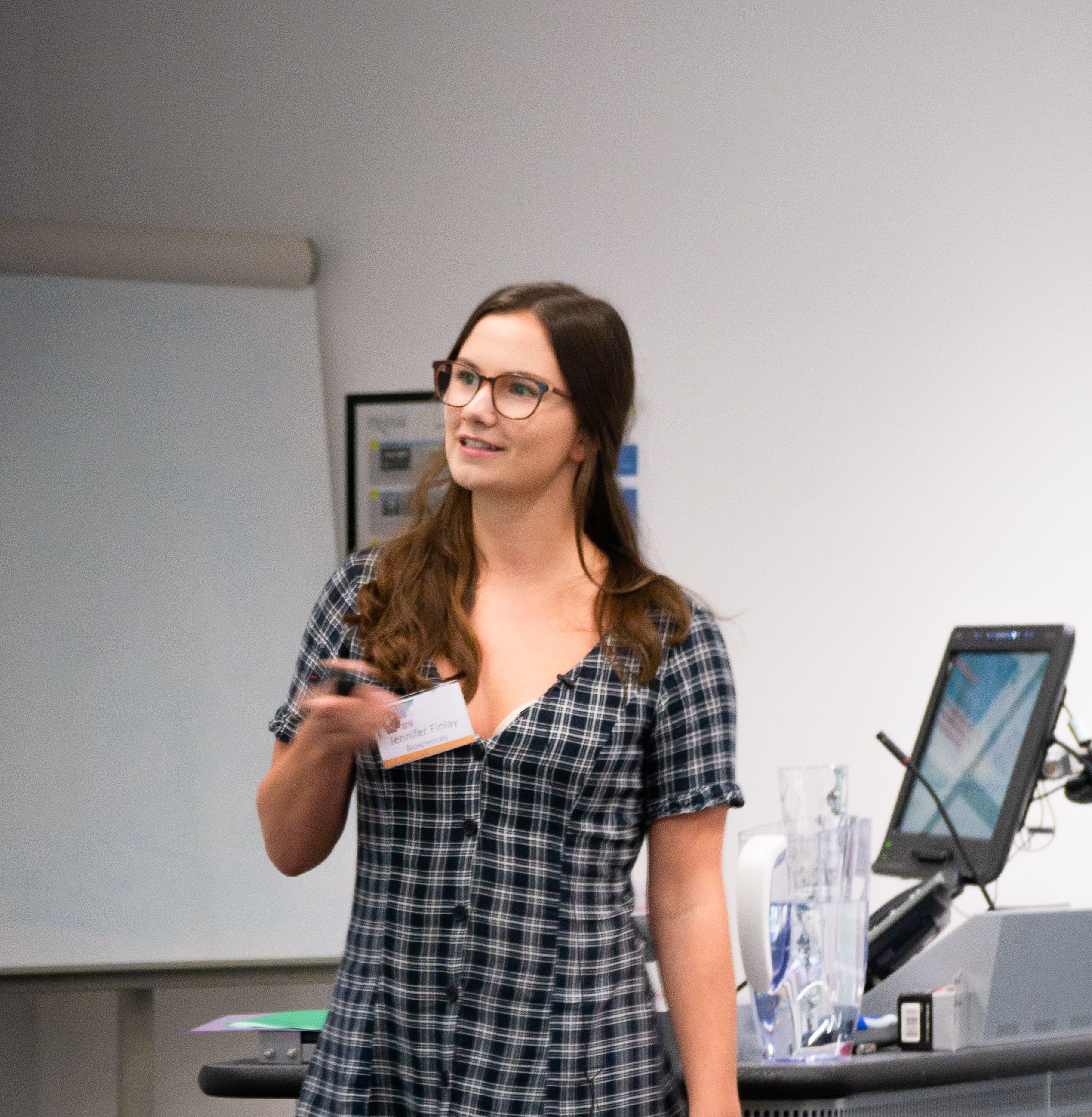 Jennifer is now a third year PhD student in the biosciences department. Jennifer looks at how elevated CO2, commonly found in fish farms, impacts lumpfish growth and behaviour. Lumpfish are farmed to be deployed into salmon pens across the U.K. and Ireland to remove sea lice, a parasite which graze on salmon and can make salmon vulnerable to infections and breathing difficulties. Jennifer has 4 main parts to her research; a partnership with Ocean Matters (the U.K.’s largest lumpfish farm), experimental work in the University of Exeter Aquatic Resources Centre (ARC), sample analysis in the biosciences department, and data analysis (the dreaded deskwork).
Jennifer is now a third year PhD student in the biosciences department. Jennifer looks at how elevated CO2, commonly found in fish farms, impacts lumpfish growth and behaviour. Lumpfish are farmed to be deployed into salmon pens across the U.K. and Ireland to remove sea lice, a parasite which graze on salmon and can make salmon vulnerable to infections and breathing difficulties. Jennifer has 4 main parts to her research; a partnership with Ocean Matters (the U.K.’s largest lumpfish farm), experimental work in the University of Exeter Aquatic Resources Centre (ARC), sample analysis in the biosciences department, and data analysis (the dreaded deskwork).
When the first lockdown hit in March 2020, I was ~ 18 months into my PhD. For students in biosciences, this is upgrade time (the meeting in which MPhil students are assessed and a review panel decide whether you have made enough progress to ‘upgrade’ your degree qualification from MPhil to PhD). I felt that my upgrade could not have come at a worse time- I was suffering from pretty much every ‘classic’ symptom of burnout which was not a great start to working from home; I felt tired, unmotivated, easily frustrated, and like nothing I did was right. I wasn’t used to trying to sit at my desk for 8+ hours a day and it was really getting to me, and those around me. I eventually had to push my upgrade until I felt ready, which was a couple of months later; my assessment panel were really supportive, reassuring me that I was not supposed to feel normal right now- we were in a pandemic, and it was ok to feel down and unproductive while we adjusted to working from home.
Back in ‘normal’ times I would be at my desk on campus, off tinkering with my experiment in the ARC, running samples in the lab, or in meetings, all in a day. Looking back, this ‘all over the place’ working schedule was hectic but felt normal, and it made me feel productive. When lockdown hit, I was suddenly a scientist without a lab, without fish, without new data, and I really struggled to adapt my day to being sat in the same place for hours on end. I had so much time on my hands, but I wasn’t doing enough, I wasn’t being productive enough…
Back in March 2020, I was a couple of weeks away from starting a long-term experiment having just transported hundreds of lumpfish from Ocean Matters to Exeter (only a 500 mile round trip…), which was not great timing. This experiment would have informed two thirds of my thesis and is still on hold, almost a year later, which still fills me with stress as I can feel the hand in clock counting down.
Thankfully, I was able to get back on campus in August 2020 and completed a short experiment with the fish I brought back 6 months earlier. Not the experiment that I was originally planning, but one which has progressed my lab skills and will inform a future experiment that I hope to complete later this year. In August, I was so glad to get back on campus, back working with my fish, tinkering with my experimental set up, and learning in person, but that feeling didn’t last long… Lab life felt slow and I started to feel all of the things which I had been feeling working from home- the burnout, the frustrations, all of it. I actually missed working from home!
Working from home has definitely allowed me to gain appreciation of what productivity means to me. The little jobs which I often left to fall to the bottom of my to-do list have become incorporated into my day. Thanks to my reduced commute (3 seconds rather than 30 minutes), I don’t feel guilty taking time out of my working days to do some chores, run errands, or to take a long lunch break to do some exercise. Each day is different, some days still feel long and like a massive struggle, but I no longer feel the same pressure to be constantly working and constantly be ‘productive’.
We are still in a pandemic, we still can’t hug our friends, and we still can’t knock on our supervisor’s door when we need help.
Upon reviewing the past year, I know that I like to stay busy, but that doesn’t necessarily mean lots of meetings and lots of running around. To feel happy and like I am making progress with my PhD, I need to focus on one or two projects at a time, learn all that I can, see them through to the end, and really try to get them right. For me, mixing campus work with working from home is what is best, at least for now. Every day I try to listen to my body and my mind and make sure that I put them first, because nothing is worth the feeling of burnout that I felt last year.
